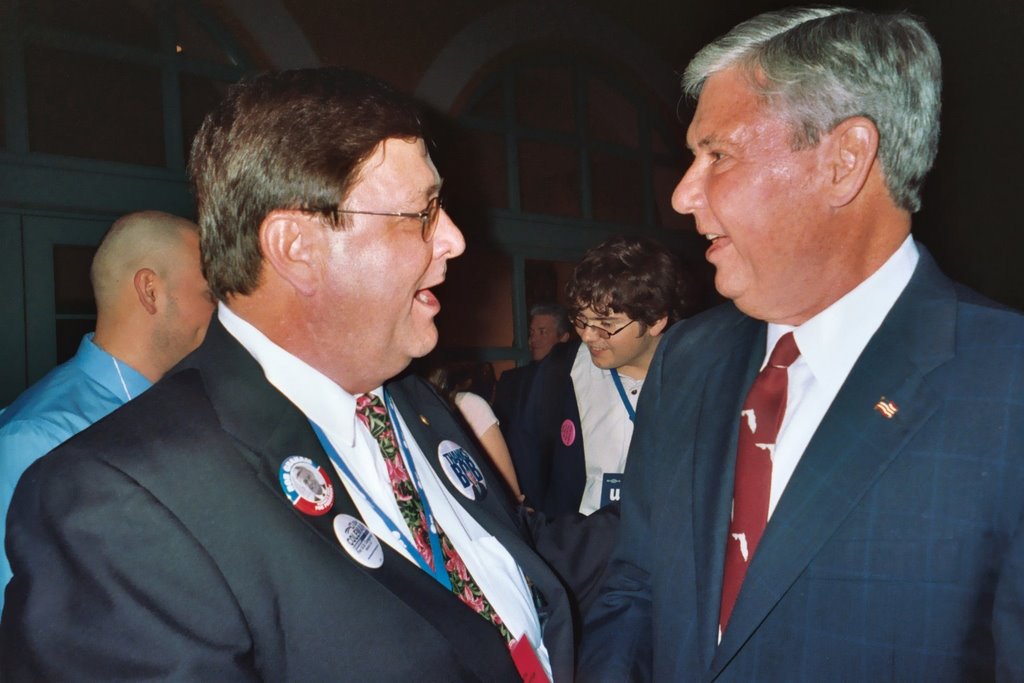We the People of the United States, in Order to form a more perfect Union, establish Justice, insure domestic Tranquility, provide for the common defence, promote the general Welfare, and secure the Blessings of Liberty to ourselves and our Posterity, do ordain and establish this Constitution for the United States of America.
The Founding Fathers laid out for us exactly why we have a government. This is why. These 52 words, the Preamble to the Constitution of the United States of America says it all. And that is their greatest gift to us all.
Happy New Year
We the People
This government is being formed by the people of the United States of America. The Declaration of Independence states it clearly:
Governments are instituted among Men, deriving their just powers from the consent of the governed,This government was not some charter granted to us a foreign potentate. This government is a compact by of and for the people who consented to be governed by it.
in Order to form a more perfect Union
We had, of course, already secured our independence form Great Britian through the Treaty of Paris ending the Revolutionary War. The original compact beteween the thirteen original states was the Articles of Confederation . After the Revolution, the myriad problems with the Articles quickly made themselves manifest. The result was a call for a Constitutional Convention to create a govenmental compact to form a more perfect union.
establish Justice
After the who (We the People) and the what (to form a more perfect Union), the first why is to establish justice. It is important to note that the founding fathers found the idea of justice so compelling that it would be first i the list of they why's for creating this government. Perhaps it is especially noteworthy in a time when we have just so callously dumped habeus corpus.
insure domestic Tranquility
It was also clearly important to the Founding Fathers that our citizens be able to live in peace, free from domestic strife. We are agreeing here to bind ourselves together under a set of rules so that we may live in "domestic tranquility" or peace.provide for the common defence
The Founding Fathers also recognized that it was a dangerous world out there. It was seen by bitter expererience that the most effective form of defense was a"common defence" as opposed to 13 seperate secretaries of defense. Maybe with Rumsfeld in there, 50 secretaries of defence slowing things down might not have been a bad idea.
It really is important to point out to my progressive friends that defense of the Constitution of the United States is one of the paramount jobs of government. It is not to carry a big stick, or to throw our weight around. But the sad fact is, there are people out there who reject everything our Constitution stands for and would kill enough of us to thow it onto the trash heap of history if they could. If the ideas represented here are not worth defending then you might as well kill me right now.
promote the general Welfare
I think this is the one that our Conservative friends seem to forget most about. Let's read this again:
promote the general WelfareImagine that. The government exists to promote the general welfare? Not the welfare of the multinational corporations or the large campaign contributors? The general welfare? Yeah, that one sort of baffles them. Kinda goes against the grain of their "government is bad" meme, doesn't it.
and last, but certainly not least,
secure the Blessings of Liberty to ourselves and our Posterity
The government was formed to secure the blessings of liberty? How can that be? Government is anti-liberty. Less government is liberty. Well, not according to our Founding Fathers. They recognized that in order to secure the blessings of liberty, there must be a government in existence to ensure that those blessings are not given, sold or otherwise seduced away from us. So, when Newt Gingrich suggests that we ought to give up our First Ammendment Rights for a little security, be sure and point he and his friends towards the ultimate reason we have a government:
to secure the Blessings of Liberty to ourselves and our
Posterity
